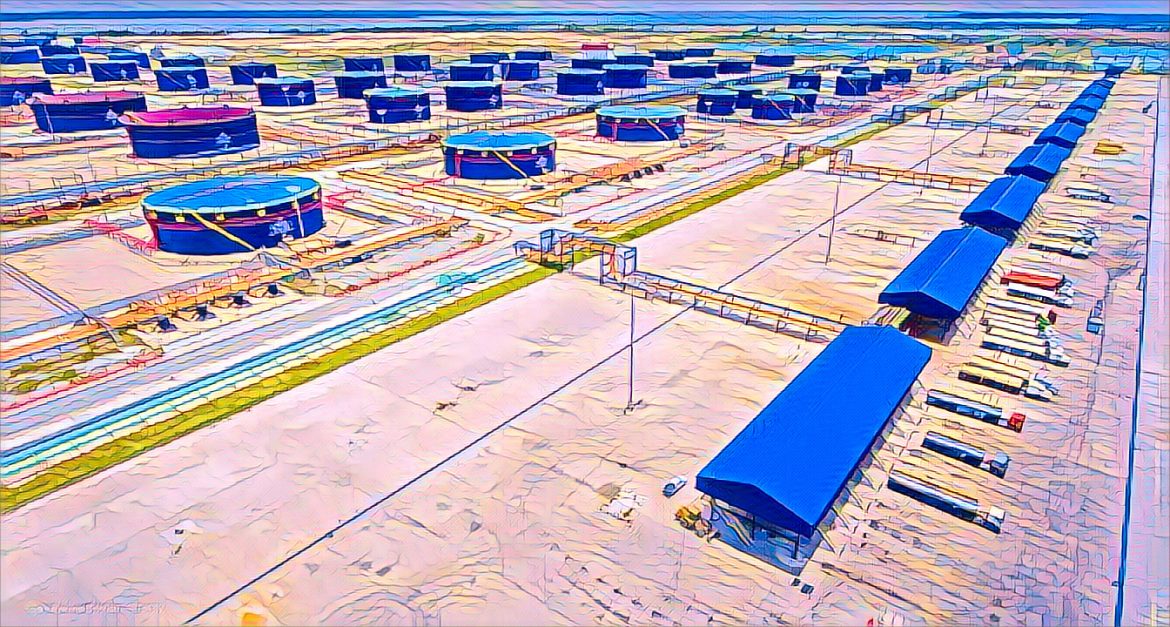The Dangote Oil Refinery, with a daily capacity of 650,000 barrels, is encountering significant challenges as it approaches its long-awaited operational debut in July. Located in Lekki, Lagos, the refinery aims to reduce Nigeria’s reliance on imported petrol. However, there are concerns within the industry about a shortage of crude oil, which could potentially impede the refinery’s ability to meet its initial petrol production targets.
Sources in the oil trading sector have indicated that the refinery has not yet secured the necessary volumes of crude oil needed for refining petrol (PMS) starting in July. Jide Pratt, the country manager for Trade Grid, a firm supporting a network of independent dealers across Africa, doubts that the refinery will meet its July deadline. Pratt suggests that the operational commencement could be delayed until as late as December due to unresolved issues surrounding crude supply and sales pricing strategies.
The situation is further complicated by financial factors. Pratt explains that existing subsidy schemes and the Nigerian National Petroleum Corporation’s (NNPC) extended credit terms with traders, which exceed 160 days, could discourage Dangote Refinery from engaging in similar credit sales, given its commercial nature and financial obligations.
Financial planning expert Kalu Aja voices frustration over Nigeria, Africa’s largest oil exporter, facing crude shortages for its own refinery operations. Aja argues that the Nigerian National Petroleum Company Limited (NNPC Ltd), which holds a 20% stake in the Dangote Refinery, should prioritize supplying crude to Dangote, reflecting its investment interest.
This sentiment is echoed by Hector Igbikiowubo, publisher of Sweet Crude Reports, who questions why the NNPC, tasked with ensuring national energy security, isn’t allocating its full crude output to support the Dangote Refinery. The NNPC’s refineries, with a combined capacity of 445,000 barrels per day, are currently underutilized, prompting questions about their allocation strategies. Efforts to clarify these issues with Femi Soneye, Chief Communication Officer at NNPC Ltd, were unsuccessful as he remained unreachable for comment.
Despite NNPC Ltd’s significant stake in the project, its commitment to supplying the bulk of Dangote’s crude needs seems uncertain. Last year, Edwin Devakumar, Vice President of Dangote Industries Limited, indicated that NNPC Ltd had already committed its crude to other entities. Although these entities were not disclosed, NNPC Ltd had previously announced a $3 billion crude oil-for-loan agreement with the African Export-Import Bank, reserving future oil production for loan repayments.
As Dangote Refinery prepares for operations, it has only processed Nigerian and U.S. crude grades so far. In the future, the refinery may seek long-term contracts with other suppliers, similar to practices among some Indian refiners with Middle Eastern crude, as suggested by trading insiders.
The larger Nigerian context includes 25 licensed modular refineries, of which only five are operational, highlighting a general shortfall in crude supply. Modular refineries, requiring less capital than traditional refineries, still face significant challenges, primarily related to crude availability. Eche Idoko, publicity secretary of the Crude Oil Refinery Owners Association of Nigeria, points out that many projects are stalled as potential financiers seek assurances of crude supply before releasing funds.
In response to these challenges, the Nigerian Upstream Petroleum Regulatory Commission (NUPRC) announced plans to mandate international oil companies to supply crude to the Dangote Refinery. Olaide Shonola, NUPRC spokesman, emphasized ongoing efforts to secure domestic crude allocations for Dangote and other local refineries, but stopped short of confirming potential sanctions for non-compliance.


